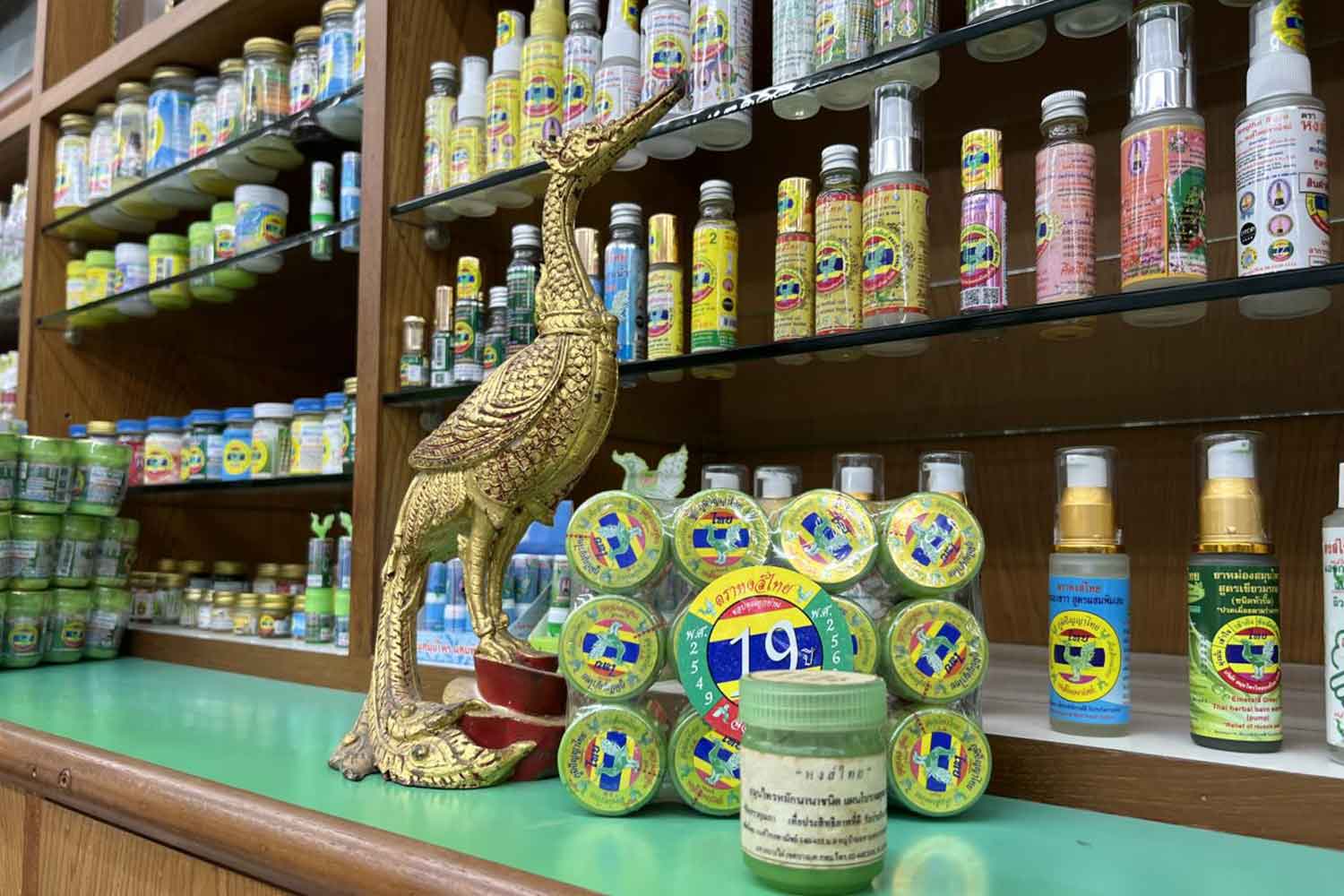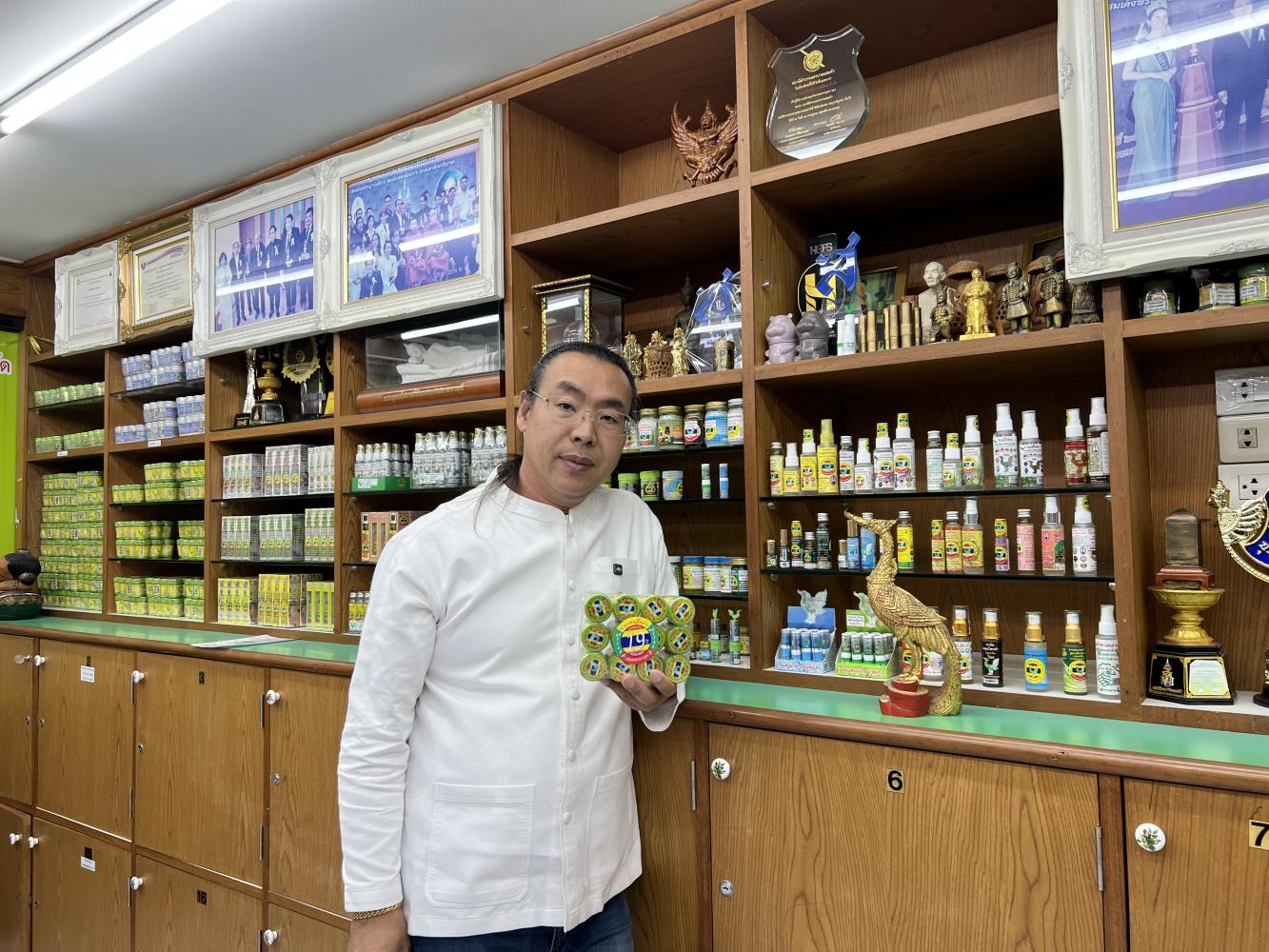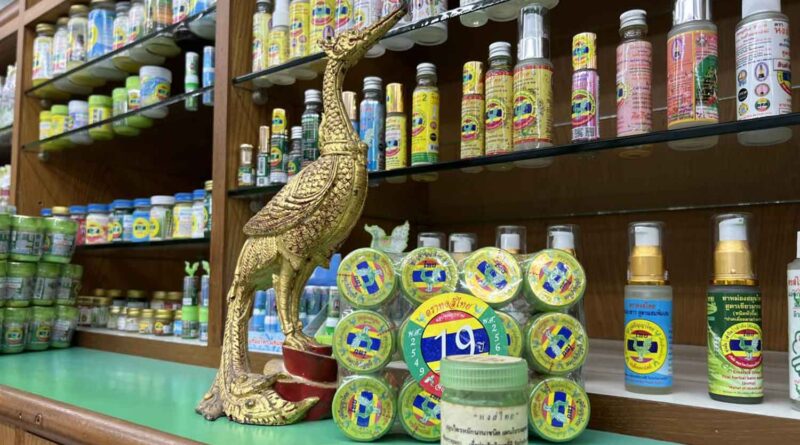Sniffing a herbal winner

With a comprehensive marketing strategy that reaches every segment and a commitment to ongoing product development, the aroma of Hongthai has become pervasive.
“Inhalers are a science in themselves. When inhaled, they can help some users feel relaxed and improve their emotional well-being,” said Terapong Rabuetham, founder and chief executive of Thai Herbal Hong Thai Co Ltd, the manufacturer of the Hongthai inhaler brand.
Hongthai’s journey
Thai Herbal Hong Thai’s path to success was not particularly smooth. After completing his military service, Mr Terapong ventured into business by selling crispy pork rinds and chilli paste to convenience stores.
In 1999, he enrolled in a vocational course to learn how to produce patchouli essential oil. After completing the course, he attempted to distribute the inhalers he began producing in local shops, but sales were disappointing and he halted production.
In 2002, an accident left Mr Terapong recovering at home for two months. He resumed production of his inhalers, expanding his distribution channels to mini-marts, petrol stations, and even temples, where the inhalers were offered as giveaway gifts at funerals.
This approach led to a surge in demand, with production barely able to keep up.
However, a fierce price war with competitors forced Mr Terapong to pause production again, as he was unwilling to compromise on quality or reduce his prices.
Two years later, an employee at a petrol station informed him motorists asked about his inhalers during the production suspension.
This example of brand loyalty inspired Mr Terapong’s belief that: “A truly good product will always have customers.”
With this inspiration, he decided to create a loyal customer base that would demand his inhaler brand.
Mr Terapong adopted a grassroots approach, selling directly to vendors at markets across Bangkok and surrounding provinces.
He valued customer feedback, addressing concerns regarding the aroma and the “cooling” effect, which allowed him to improve the product to meet customer expectations.
Through word-of-mouth marketing, the product expanded from the local market to capture the attention of university students, a group often combining study late at night with a social life.
Hongthai inhalers quickly became popular among college students, helping the brand expand into broader markets, said Mr Terapong.

Mr Terapong values customer feedback and addressed concerns regarding scent and the product’s cooling effect, allowing him to improve the product and meet customer expectations.
Marketing Strategy
In the current market structure, manufacturers can place less stress on sales staff if they can secure distribution deals with large wholesalers and modern trade operators, he said.
Mr Terapong said Thai Herbal Hong Thai prioritises risk management and avoids excessive dependence on any one sales channel.
The company’s customers are segmented into different layers, ranging from mom-and-pop shops, mini- marts, pharmacies and wholesalers in order to penetrate each layer effectively, he said.
This means Hongthai maintains relationships with mom-and-pop shops, even those located in remote areas.
The company employs a sales team specifically for distributing products to these small retail outlets, said Mr Terapong.
He admitted this networking approach might not always generate a huge profit, as small stores often have small orders, but he believes the company must connect at the grassroots level.
By engaging with these small stores, the company builds brand awareness, regardless of the sale size.
Once customers become familiar with the brand, they will continue to choose its products even if they relocate elsewhere in the country, said Mr Terapong.
“Our grassroots-focused marketing strategy is an investment in our future,” he said.
Further Growth
The company now offers a diverse product portfolio comprising inhalers, balms, sprays and herbal oils.
Mr Terapong said roughly 80% of sales come from the domestic market, with a total sales target of around 500 million baht this year.
“We are considering expansion into Southeast Asia,” he said.
The company’s facility located in Bangkok’s Bang Khae district has a production capacity of around 100,000 units a day.
Mr Terapong said the company is building a new plant in Nakhon Pathom province that can expand production capacity to 300,000 units per day, improving the company’s potential to expand in the region.
Stress relief
Though Thailand’s economy is languishing with a high household debt-to-GDP ratio, he said he believes inhaler sales will continue to grow.
The Thai household debt-to-GDP ratio was 88.4% in the fourth quarter of 2024, according to the National Economic and Social Development Council.
Mr Terapong said the economic slowdown may lead to increased stress and anxiety for people, presenting an opportunity for Thai herbal remedies such as inhalers, which some folks claim are effective at reducing stress.
From a business perspective, he said the slowdown provided the company with some valuable lessons in navigating challenges and adapting to changing conditions.
Healthy Approach
In contrast to previous bouts of price competition, the Thai herbal remedy segment is now prioritising product development, a shift Mr Terapong views as healthy for the industry.
He said new products and players are emerging in the market.
If industry operators focus on healthy practices, Mr Terapong said the Thai herbal remedy sector can expand further.
Hongthai preaches constant product development as a core principle, he said.
This commitment to ongoing innovation enhances the brand’s reputation, positioning it as synonymous with quality, said Mr Terapong.
This perception of quality can only be achieved through continuous product improvement to benefit customers, he said.
Source – Bangkok News




